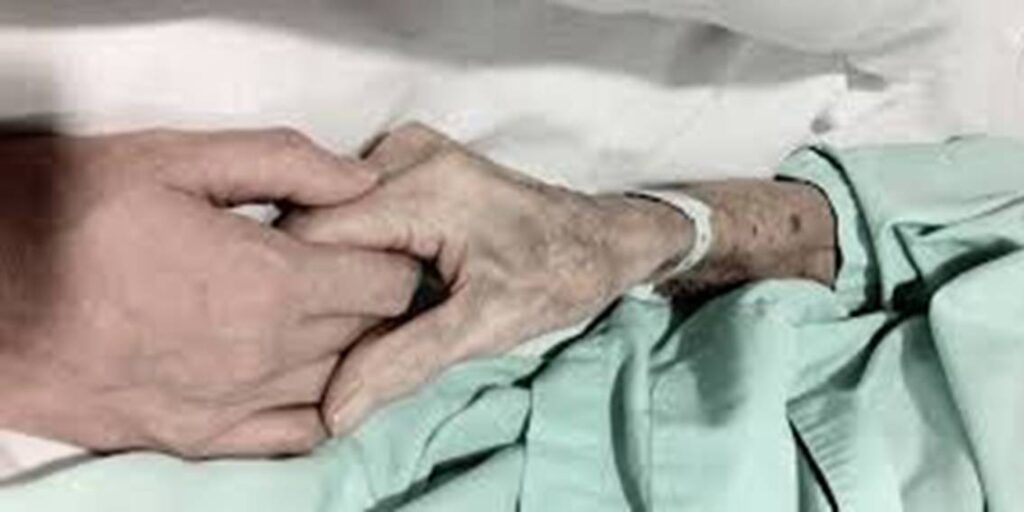The Debate on Euthanasia: “The Right to Die” Bill
The debate on euthanasia, often referred to as the “right to die,” has ignited a storm of controversy in Cyprus. As the Cypriot parliament considers the introduction of a euthanasia bill, lawmakers and the public remain sharply divided. Proponents argue that the bill would give terminally ill individuals the autonomy to end their suffering on their terms. At the same time, opponents fear it could lead to moral degradation and the erosion of the value of life. This heated debate touches on ethical, religious, legal, and medical issues, making it one of the most polarizing topics in recent Cypriot political discourse.
Background and Context
The right-to-die movement in Cyprus has gained momentum in recent years, following international trends where countries like Belgium, the Netherlands, and Canada have legalized euthanasia under strict regulations. Advocates for the bill in Cyprus argue that the state must recognize the right of individuals to make choices about their own lives, especially in cases of terminal illness or irreversible suffering. They believe the bill represents a humane response to suffering and aligns with human rights principles emphasising dignity and personal autonomy.
However, Cypriot society remains deeply influenced by its Orthodox Christian roots, and religious leaders have emerged as some of the bill’s most vocal opponents. The Church argues that life is sacred and only God should decide when it ends. Archbishop Chrysostomos II has called the bill a direct assault on Christian values, warning that it would lead to a slippery slope of moral decline.
Proponents of the Bill: The Case for Autonomy and Compassion
Advocates for euthanasia focus on the suffering of terminally ill patients who endure excruciating pain and diminished quality of life. Many of these patients, they argue, reach a point where death becomes a merciful release from an unbearable existence. Proponents believe that by denying these individuals the option to choose euthanasia, the state forces them to endure unnecessary suffering.

Individuals Right to Make Decisions About Their Own Lives
Lawmakers supporting the bill also stress the importance of personal autonomy. They argue that individuals should have the right to make decisions about their own lives, including the decision to end their lives when faced with unbearable pain. One of the MP’s, the bill’s most vocal supporters, insists that the state has a responsibility to protect the dignity of all its citizens, including those who wish to die with dignity. According to her, “We must allow individuals to make their own decisions about how they live and how they die.”
The proponents also emphasize that the bill includes stringent safeguards. Patients seeking euthanasia would need to meet strict criteria, including being diagnosed with a terminal illness by multiple doctors and undergoing psychological evaluations to ensure they are fully aware of the consequences of their decision. Additionally, the bill mandates that patients must request euthanasia multiple times over a set period to avoid impulsive decisions.
Opponents: The Ethical and Religious Concerns
On the opposing side, many Cypriot MPs, religious figures, and segments of the public express deep concerns about the moral implications of euthanasia. They argue that legalizing euthanasia fundamentally devalues human life, setting a dangerous precedent. One MP, an outspoken critic of the bill, claims that “Legalizing euthanasia sends the message that some lives are not worth living, and this could eventually lead to broader acceptance of assisted death for vulnerable populations.”
The opponents also highlight the potential for abuse. They fear that legalizing euthanasia could pressure vulnerable individuals, such as the elderly or disabled, into choosing death to avoid being a burden on their families or society. The lack of absolute certainty about a terminal diagnosis also worries critics. Medical advances continue to evolve, and they fear that patients could choose euthanasia based on a prognosis that might later prove incorrect.

The Church of Cyprus Role
Religious leaders remain among the most steadfast opponents. They argue that euthanasia contradicts the sanctity of life, a principle deeply ingrained in Cypriot culture through the teachings of the Orthodox Church. A Church Member, have repeatedly stated that euthanasia represents a violation of God’s will. He argues that suffering has a spiritual value and that individuals should seek solace through faith and community support rather than taking their own lives.
Medical Community: Divided Opinions
The medical community in Cyprus finds itself at the centre of the euthanasia debate. Some doctors support the bill, seeing it as a way to alleviate suffering for patients whose conditions leave them in constant pain. An oncologist doctor believes that giving terminally ill patients the option of euthanasia reflects compassion. “As doctors, we are committed to alleviating suffering. When all medical treatments fail, and a patient faces unbearable pain, euthanasia can be the most humane option.” However, many other doctors oppose the bill, citing ethical concerns. They argue that the

Hippocratic Oath obligates them to “do no harm,” and euthanasia could blur the line between helping patients and actively causing death. Some fear that legalizing euthanasia would fundamentally alter the doctor-patient relationship, shifting the focus from preserving life to potentially ending it.
Conclusion
The euthanasia debate in Cyprus exposes deep divisions within society, reflecting broader global struggles over the right to die. On one side, advocates champion autonomy and compassion for terminally ill patients. On the other, opponents argue that life remains sacred, and legalizing euthanasia could open the door to unintended consequences and moral decline. As the debate continues, the Cypriot parliament faces a difficult decision that could have profound implications for the future of end-of-life care in the country. Whatever the outcome, this issue will leave a lasting impact on Cypriot politics and society.
You May Also Like This
Healthcare in Cyprus: https://anatolikilemesou.com/?p=1611
Health Care in Cyprus: https://www.april-international.com/en/destinations/europe/health-insurance-in-cyprus




